
Lung cancer screening experts from around the globe delivered strategies and best practices for improving access to screening and facilitating earlier detection at the 2024 World Conference on Lung Cancer.

Lung cancer screening experts from around the globe delivered strategies and best practices for improving access to screening and facilitating earlier detection at the 2024 World Conference on Lung Cancer.
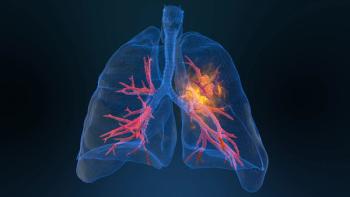
The therapeutic landscape for non–small cell lung cancer (NSCLC) has been relatively stable since the 2016 approval of pembrolizumab, but results presented at the 2024 World Conference on Lung Cancer could shake up that status quo.
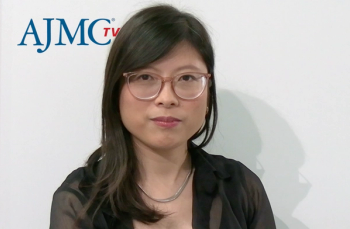
Io Hui, PhD, researcher at The University of Edinburgh, discusses how artificial intelligence (AI) is being applied in respiratory care for both clinicians and patients.

A pair of studies presented at the European Respiratory Society Congress 2024 emphasized the importance of close monitoring and proactive treatment approaches for patients with idiopathic (IPF) and progressive pulmonary fibrosis (PPF).
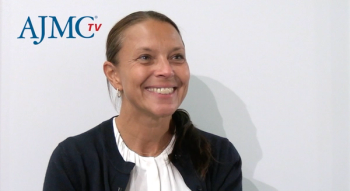
There are general risk factors for patients with rheumatic disease developing interstitial lung disease, but there are also disease-specific risk factors depending on which rheumatic disease they have, explained Anna-Maria Hoffmann-Vold, MD, PhD, a senior consultant and leader of inflammatory and fibrotic research area at Oslo University Hospital.

Speakers at the European Respiratory Society Congress 2024 highlighted the potential of artificial intelligence (AI) in transforming respiratory health care, while also raising important ethical concerns related to autonomy, equity, transparency, and sustainability.

The Center on Health Equity & Access provides the latest news, research, and expert opinions on the state of equity in health care.

Susan Sabo-Wagner, MSN, RN, OCN, of the American Oncology Network, expressed excitement toward networking, innovative discussions, and panels on patient advocacy at Patient-Centered Oncology Care® (PCOC) 2024.

The 2024 World Conference on Lung Cancer (WCLC) marks the 50th anniversary of the International Association for the Study of Lung Cancer. Sandip Patel, MD, joined for an interview looking forward to the unique features of this year's meeting.

The 2024 World Conference on Lung Cancer (WCLC), meeting in San Diego, California, from September 7 to 10, 2024, will feature practice-changing data and discussion in the lung cancer space.

Lead investigators, presenters, and the chair of this year’s European Society of Cardiology Congress, John McMurray, MD, discussed the meeting highlights and recapped important data.

At the 2024 European Society of Cardiology Congress (ESC), key research in cardiology care included studies conducted on cardiovascular disease risk among women, cardiac distress and smoking, and lipoprotein(a).
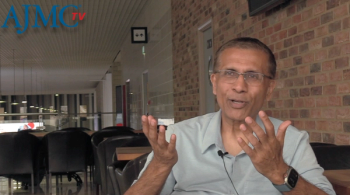
The FINEARTS-HF late-breaking data were forefront at the 2024 European Society of Cardiology Congress in London.

The European Respiratory Society (ERS) Congress 2024 will delve into the balance between human expertise and the growing role of artificial intelligence (AI) in respiratory medicine.

Neil Goldfarb, president and chief executive officer of the Greater Philadelphia Business Coalition on Health (GPBCH), previews the variety of themes and sessions at the upcoming GPBCH Annual Wellness Summit taking place September 10, 2024.

Martin Kolb, MD, PhD, professor of medicine at McMaster University, previews key topics to be presented at this year's European Respiratory Society (ERS) Congress.

The annual meeting of oncology stakeholders presented by The American Journal of Managed Care® takes place September 12-13, 2024.

A heart failure program with a multidisciplinary team provides statistically significant improvements, and 2 countries determine the current prices of semaglutide are not cost-effective for secondary prevention of cardiovascular disease in patients with obesity, according to abstracts at the European Society of Cardiology (ESC) Congress 2024.
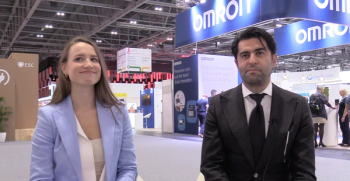
"Now we can actually focus and look at the disease itself, treat the heart disease itself, which is the plaque in the coronary arteries, as opposed to treating the risk of disease," Amir Ahmadi, MD, Mount Sinai, says in an interview at the European Society for Cardiology Congress.

Finerenone's approval by the FDA to treat type 2 diabetes–associated chronic kidney disease was supported by data from the phase 2 FIDELIO-DKD trial; now, the results of FINEARTS-HF show real-world application for patients living with heart failure with preserved ejection fraction or mildly reduced ejection fraction.
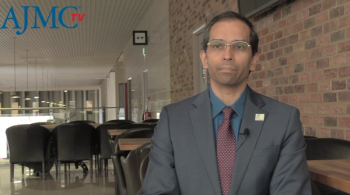
Deepak Bhatt, MD, Mount Sinai Heart, highlights the kidney-specific outcomes of the pivotal EMPACT-MI clinical trial in an interview at the 2024 European Society of Cardiology Congress.
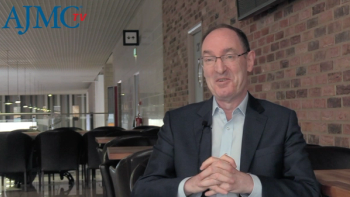
In patients with heart failure with mildly reduced and preserved ejection fraction, finerenone reduced the risk of heart failure worsening or hospitalizations compared with placebo, explained John McMurray, MD, the co–principal investigator of the FINEARTS-HF trial.

The obesity epidemic is a global crisis, with experts from around the world emphasizing the importance of short-term strategies, long-term solutions, and multidisciplinary collaboration as they advocate for the heart health of their patients.

At the 25th International AIDS Conference, Emmanuel Nazaire Essam, MD, MPH, presented the analysis, "Medicaid Insurance Expansion and Its Association With HIV Outcomes in Nebraska, USA: An Observational Prospective Cohort Study."
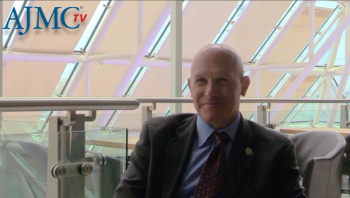
Christopher Kramer, MD, vice president of the American College of Cardiology, discusses the newest data on finerenone for heart failure presented during the FINEARTS Hot Line session at the European Society of Cardiology Congress.

David Thompson, PhD, Queen’s University Belfast, expands on previous research he conducted that calls for cardiovascular health care providers to actively address care inequities evident in practice and policy.

Anna Mueller, MD, and Amir Ahmadi, MD, of Mount Sinai, highlight gaps in risk assessment tools for acute coronary syndrome, calling for more comprehensive screening strategies.

A joint session from the European Society of Cardiology and the World Heart Federation examined the impact of noise, climate change, and air pollution on cardiovascular disease.
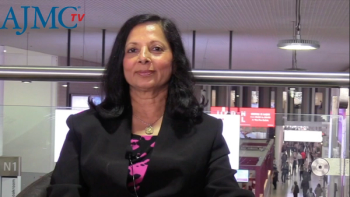
After moderating an emerging science session on acute ST-elevation myocardial infarction care, Dipti Itchhaporia, MD, American College of Cardiology, discussed the growing inclusivity in clinical trials through innovative digital tools and addressed the impact of GLP-1 therapies on cardiovascular treatment.

Pregnant and postpartum women who have cardiovascular (CV) disease represent a high-risk group of patients who require specialized care and intense monitoring for optimal health of them and their baby.

259 Prospect Plains Rd, Bldg H
Cranbury, NJ 08512
© 2025 MJH Life Sciences®
All rights reserved.
